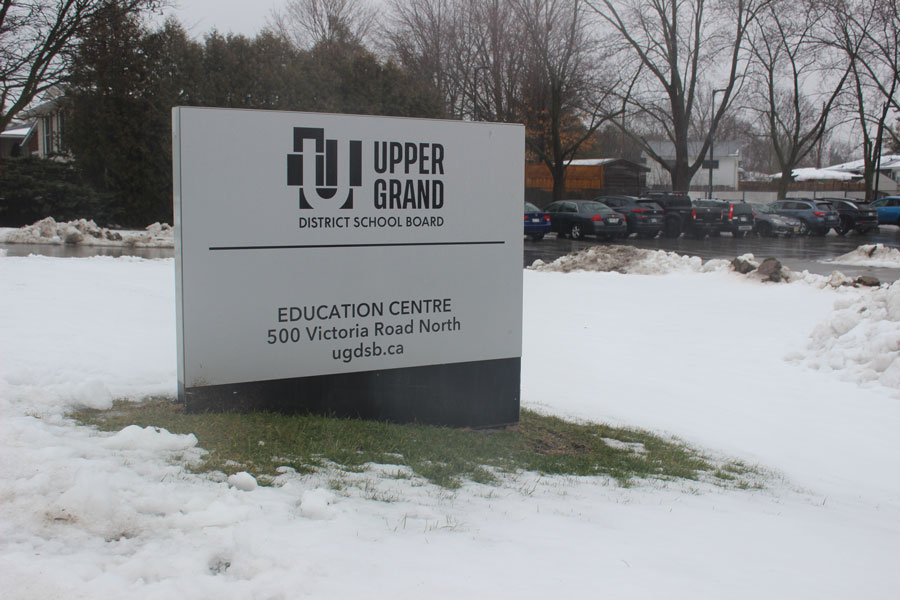GUELPH – Construction for new Centre Wellington elementary and South Guelph secondary schools could begin as soon as spring.
The target opening dates are September 2025 for the school in Fergus and September 2026 for the school in Guelph.
That’s according to an update Upper Grand District School Board (UGDSB) senior facilities manager Dilip Parmar presented to the finance and facilities committee during a meeting on Jan. 23.
Both schools will use electric heat pumps as the primary heat source, including for heating water.
Natural gas will be used to supplement the electric heat pumps during extremely cold temperatures.
Trustee Jen Edwards inquired about the possibility of installing solar panels at either of the new schools.
Though solar panels are not included in the plans so far, Parmar said “we make sure that new construction is ready for solar panels, whether that be roof construction, weight capacity or wiring.”
The Centre Wellington elementary school will have a generator in case of power failures.
For the Centre Wellington elementary school, the board has received approval to proceed from the ministry and has released the tender for pre-qualified contractors to submit bids.
For the South Guelph secondary school, the site plan process with the City of Guelph is nearing completion and approval to proceed forms have been submitted to the Ministry of Education.
“The approval to proceed is required before we can move forward with the tendering process,” Parmar said.
During a board meeting on Feb. 13, Edwards presented a report outlining the updates.
Trustee Katherine Hauser said she received a couple questions from members of the public regarding the two new schools, including why natural gas would be used as a supplemental system, instead of a back-up electric pump.
Executive superintendent of business services Glen Regier explained that during extremely cold weather, electric heating pumps would not generate enough heat to warm the large high school building.
“So when the temperature gets into minus-30, for example … that’s when the heat pumps, as they are currently designed, would not be effective enough,” Regier said.
“Then, in that case, the natural gas would be a supplemental heat in order so that there would be enough generated heat into the building to maintain an adequate level.”
“This is a typical design method as at this time to ensure buildings are resilient during extreme low temperature conditions,” Parmar noted. “They’re not capable handling extreme conditions, which is why we need natural gas to back up these systems.”
Hauser said another question was submitted that asked whether, for the Centre Wellington elementary school, a battery solution was considered instead of the generator for back-up power.
Regier explained that the back-up generator is a mandatory requirement, to power the fire sprinkler system in case of a power failure. The school design includes enhancing this mandatory generator so that it could also supplement other systems in case of a power outage, he said.




